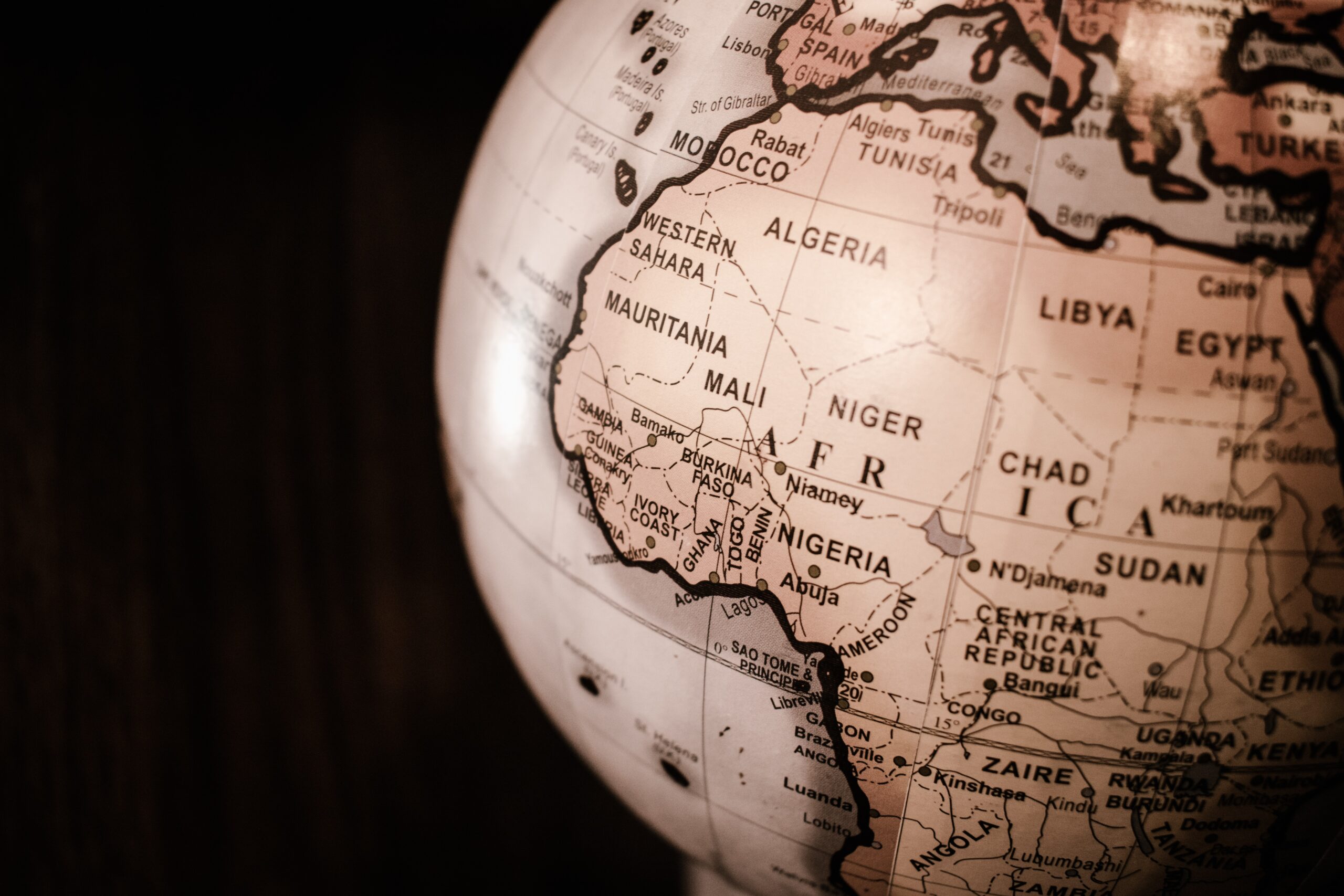A personal story
As the New Year begins to unfold, many of us have set resolutions and established goals for 2024, driven by our desire for change and progress. This time of year is synonymous with transformation and the pursuit of new aspirations. In my own life, this period of transition has always held special significance.
Traditionally, the final week of December is a sacred time for me, devoted to silence, meditation, and journaling. It’s a period of deep reflection, gratitude, and a space to release the past year and embrace the new energies of the upcoming one. But this year was quite different. My usually peaceful meditation week was anything but tranquil. It was overshadowed by a profound sense of uncertainty, replacing the anticipation of greeting the new year with open arms and a clear vision with unsettling ambiguity about my personal and professional life.
Despite being an accomplished and driven individual, I am confronted with an unfamiliar unease about my life as I step into 2024. The decision whether to stay in the US or move abroad, influenced by the current political landscape, increasing polarization, and the underlying currents of racial tension and systemic racism, weighs heavily on me. While I deeply cherish my family and friends, my soul is increasingly drawn towards solitude and introspection. I find myself yearning for more depth and meaningful connections in my personal and social interactions, and less inclined to engage superficially, a trend that is often pervasive in today’s climate. Like most people, I value certainty and predictability, but I find myself navigating a period of transition filled with profound uncertainty.
I’ve come to realize that I, along with countless others, am standing at the threshold of a liminal space.
Before we go further, let’s clarify what is meant by “liminal spaces.” Derived from the Latin word “limen,” which means threshold, liminality refers to a transitional or in-between phase. Think of it as the cocoon stage of a butterfly’s metamorphosis – a place of change and potential.
Liminality, while a concept used in anthropology, is deeply relevant to our personal lives. It’s the middle stage of a rite of passage; not quite the past, yet not fully the future. It’s the period of ambiguity, the waiting and not knowing, that marks significant transitions in life.
One might argue that we are perpetually in a liminal space, continuously transitioning from one phase of life to another. Yet, there are times when this state of transition becomes more pronounced, more palpable. If you find yourself resonating with these feelings, perhaps you’re experiencing the distinct nature of being in a liminal space as well.
Some Signs of Being in a Liminal Space:
Through research and exploring various articles, I’ve gathered a deeper understanding of the signs that indicate one is in a liminal space. This exploration has revealed that liminality can manifest in diverse and unique ways, affecting individuals differently. Here are some signs of being in a liminal space, both from my experiences and from the insights of others:
- Anxiety and Restlessness: A sign of being in a liminal space is experiencing anxiety and restlessness about the future. This isn’t just about not knowing which path to take; it’s also about sensing that something new is emerging, yet not being able to clearly define or anticipate what it is. There’s a palpable sense of something unknown and transformative on the horizon, but its exact nature remains elusive. This ambiguity about what lies ahead can lead to a feeling of restlessness — a readiness or eagerness to move forward, coupled with the uncertainty and apprehension of stepping into the unfamiliar. This combination of anticipation for what is emerging and the lack of clarity about what it will be can create a kind of tension, characterized by both excitement and unease.
- Anticipation of Transformation: Being in a liminal space can often feel like being in a holding pattern, akin to the quiet before a storm or the darkness before dawn. There’s a palpable anticipation for a change or transformation. This waiting period can be filled with a mix of apprehension and hopeful expectancy, as the old ways of being are shed in preparation for something new and yet unformed.
- Ambiguity: This stems from a lack of clarity, leading to uncertainty and multiple interpretations. This is especially common in relationships, whether romantic, platonic, familial, or among friends, where unclear intentions and feelings often cause confusion about the nature of these connections. During these times, relationships may be experiencing a transitional phase marked by unclear usual markers, making decisions and discerning the direction of relationships challenging. This sense of uncertainty extends to other areas like career paths and life choices, where intentions and messages can be open to different interpretations. Here, the challenge is making decisions and navigating situations without clear markers or guidelines, finding oneself in spaces of liminality where conventional references are blurred or missing.
- Heightened Self-Reflection: In a liminal space, individuals often experience intensified self-reflection and introspection. This can manifest as questioning one’s identity, purpose, or direction in life. There’s a deeper examination of personal values, beliefs, and life choices, accompanied by a sense of standing at a crossroads. Such introspection can be both unsettling and enlightening, as it may lead to significant personal revelations or shifts in perspective.
The Global Liminality
Our world, mirroring our individual experiences, is indeed on the brink of liminality. As a global community, we find ourselves at a unique juncture, a liminal space that affects us all. This collective experience of ‘being and becoming’ reflects a world in transition, navigating between what was known and the unknown possibilities of the future. This period is marked by heightened global tensions, including wars, increased violence, and the pervasive impact of structural racism and inequality. These challenges underscore the critical issues that societies are facing. Yet, within this liminal space, there are also significant opportunities for constructive change and growth. There’s a rising consciousness about the need for cooperation, peace, sustainability, and social justice, driving movements towards a more harmonious and equitable world. As we navigate this transitional phase, we are collectively grappling with these complexities, seeking pathways for a transformative global awakening.
Coping & Getting Support
Navigating this transitional stage of life, I have found solace and strength through a blend of therapy, spiritual counseling, and several self-care practices. My regular sessions of therapy and spiritual counseling have been instrumental, providing a safe and nurturing space for reflection and guidance. This support has been essential in helping me process my thoughts and emotions during this period of uncertainty.
Acceptance Commitment Therapy (ACT), introduced to me by my therapist, has been particularly beneficial. Emphasizing the acceptance of emotions and situations as they are, while committing to actions that align with personal values, ACT has been a guiding force. A key aspect of this therapy is identifying and adhering to my core values, ensuring that my daily actions are in harmony with what is truly important to me.
ACT has been pivotal in this liminal space, offering a structured yet flexible framework to navigate uncertainty, enabling me to adapt to changing circumstances with openness and awareness. It teaches acceptance over resistance, helping me to embrace my feelings of uncertainty instead of fighting against them.
Additionally, my weekly spiritual counseling sessions, which include meditation and visioning exercises, have created a safe, affirming environment, offering spiritual support that has been immensely helpful. Engaging in movement and dance, along with prioritizing rest for my body and mind, has been incredibly replenishing.
For anyone finding themselves in a similar space, I encourage seeking out someone to talk with – whether it’s a therapist, a spiritual counselor, or even a trusted friend or mentor. Engaging in meaningful conversations can provide immense clarity, comfort, and guidance, and can be instrumental in navigating the complexities and uncertainties of such a transitional phase.
Embracing your liminal space
If you find yourself in a liminal space at this time, remember that this period is rich with opportunities for profound growth and transformation. In this threshold of change, may you find the courage to explore uncharted territories, to dream beyond the confines of the familiar, and to actively become the architect of your own transformation.
Embrace any liminality you encounter with an open heart and a curious mind. In these in-between spaces, moments of transition and uncertainty, lies the potential to meet your truest self. These periods can be the crucibles where resilience is honed and deep insights are gained. Here, the paths to authentic growth, understanding, and self-discovery await. By embracing the unknown, you open yourself to new beginnings and the chance to reshape your life in unexpected and enriching ways.
Go Well,
Thulani
Please feel free to share with others.






